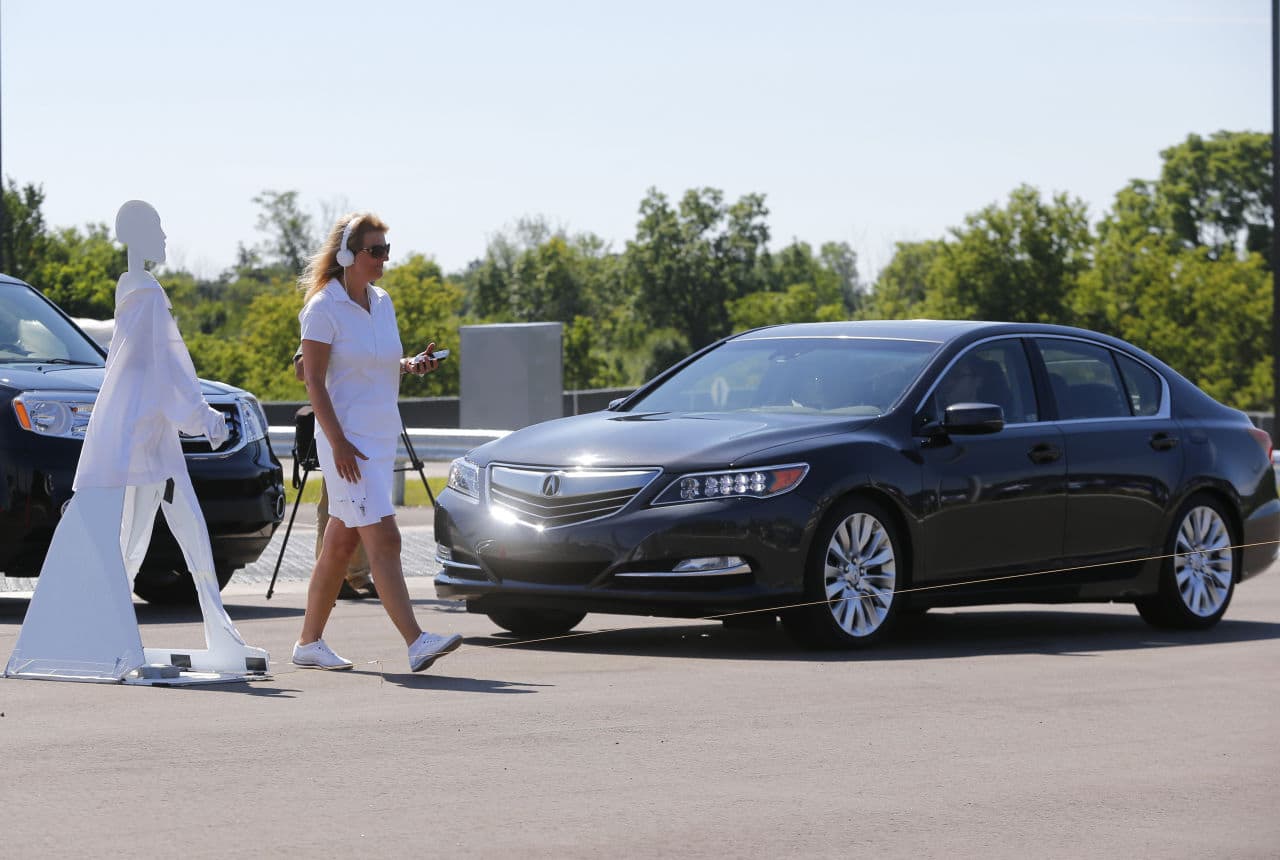Advertisement
Detroit Vs. Silicon Valley: The Future Of The Driverless Car
A new test city for driverless cars in Michigan. We’ll look from there to Silicon Valley and ask who’s in the driver’s seat for automotive innovation.

They opened a big new test site for driverless cars in Michigan yesterday. A simulated city with miles of road, stoplights, cafes, potholes. And a challenge to California. “They’ve got nothing on us,” said Senator Gary Peters. “We’re not going to let California take this technology.” Well, Google and Uber and Apple and more on the west coast may have different ideas. They are all over driverless cars too, pushing forward much faster than you may know. There’s a driverless revolution coming. Who will own it? This Hour, On Point: Detroit, Silicon Valley, and the future of driverless cars.
– Tom Ashbrook
Guests
Michael Ramsey, automotive industry reporter for the Wall Street Journal. (@MRamseyWSJ)
Ashlee Vance, technology writer for Bloomberg Businessweek.(@valleyhack)
Ryan Eustice, engineering and robotics professor at the University of Michigan, where he runs the Perceptual Robotics Laboratory. He helped design MCity, and designs and tests driverless cars for Ford Motor Company.
Mark Muro, Senior Fellow and Policy Director for the Metropolitan Policy Program at the Brookings Institution. (@MarkMuro1)
From Tom’s Reading List
Wall Street Journal: Firms Back $10 Million Testing Ground for Self-Driving Vehicles — "The race to provide vehicles with more autonomous features or the capability to operate without driver intervention is one of the auto industry’s primary pursuits, requiring billions of dollars in capital and a shift in how products are developed. The trend has attracted new players to the industry, including Google Inc., while boosting the fortunes of companies, such as Israeli components-supplier Mobileye NV, that formerly filled niches."
Associated Press: Two visions emerge for getting self-driving cars on road — "Two competing visions could determine how you first experience a driverless car.Traditional automakers like Mercedes and Toyota already make vehicles equipped with systems that keep cars within their lanes, apply the brakes or park by themselves. Their plan is to gradually automate more functions of driving until, perhaps by 2025, some cars will be fully capable of driving themselves. But Google, Alibaba, Baidu and other tech companies are aggressively working on their own self-driving vehicles, and could leapfrog the car industry in bringing them to market. Google, for instance, promises to deliver a self-driving car in five years."
WIRED: Self-Driving Cars May End the Fines That Fill City Coffers — "Before long, self-driving cars will deliver a lot of benefits. First and foremost, they’ll increase safety. Accidents won’t be eliminated, but surely will produce better results than humans, who play an outsized role in the 30,000 fatalities in US roads. They’ll also increase productivity—work in the car!—and perhaps even let you sneak in a nap. Not everyone is looking forward to the age of autonomy, though. One potential loser? Local governments."
This program aired on July 21, 2015.